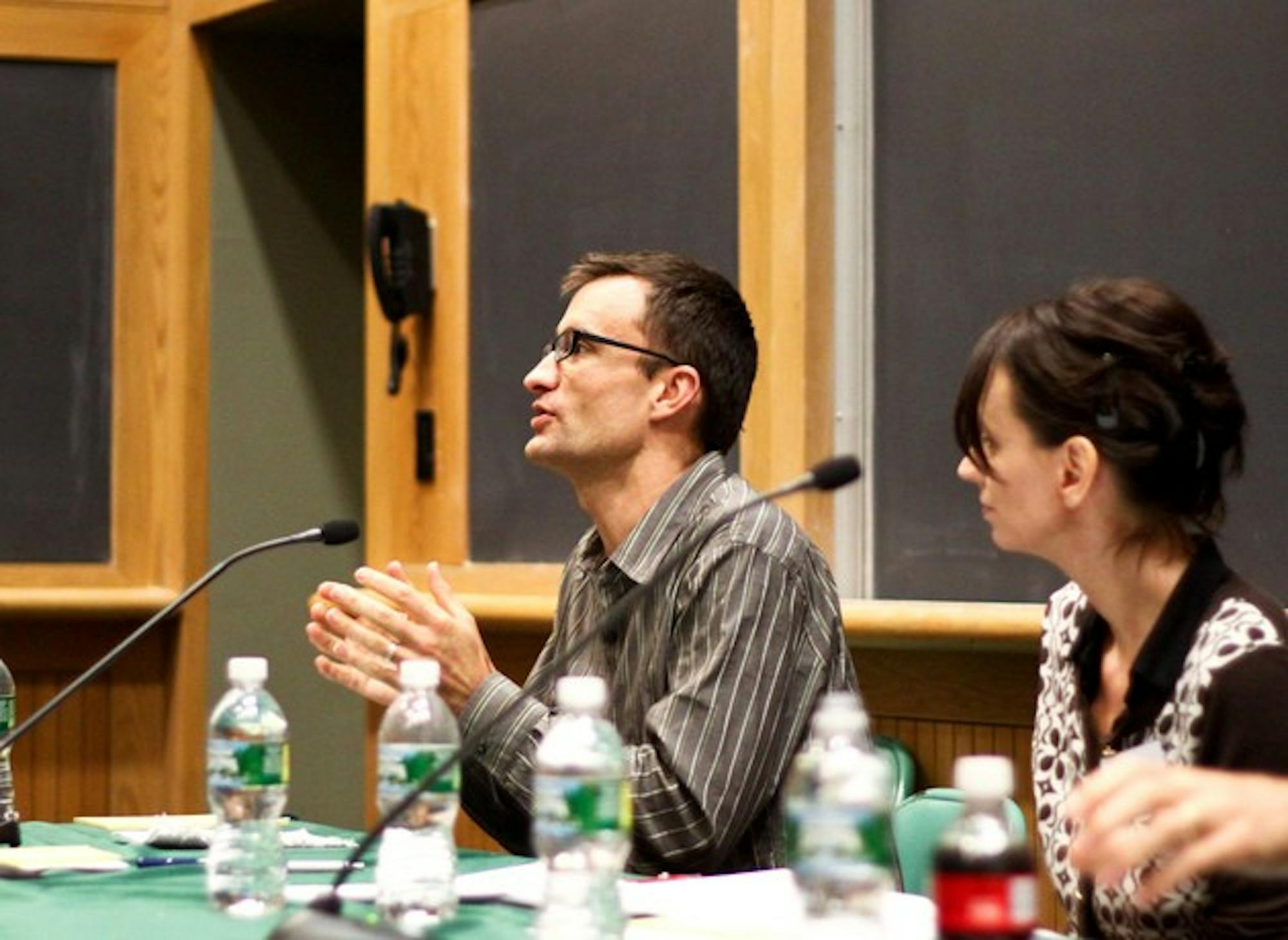"After September 11, there was a lot of discussion of what it meant to be patriotic," Dartmouth government professor Michelle Clarke, who helped organize the conference, said in an interview with The Dartmouth. "The question that wasn't being asked is whether or not patriotism was valuable at all, and whether or not we should try to be patriotic in the first place. The purpose of the conference was to air some of those concerns."
During a 90-minute panel discussion, Johnston clashed with William Galston, a professor at the University of Maryland School of Public Policy, over the definition and function of patriotism.
Johnston said that civic responsibility is more important than patriotism, arguing that an ardent and blinding love of one's country is dangerous.
"Rather than being indispensable, patriotism is inimical to democracy," he said.
He pointed to Sept. 11 memorials, which he said were constructed for patriotic purposes but ultimately served to commemorate death and victimization.
Galston, however, argued that patriotism when practiced with moderation can allow people to love their country while remaining critical of systemic mistakes and national shortcomings.
"Patriotism can lead, and has, to serious breaches in our Constitution, but it is equally true that without patriotism there would be no Constitution," Galston said.
In the second panel discussion, James Ingram, a political science professor at McMaster University in Ontario, Canada, and David Bromwich, a Yale University English professor, debated whether individuals have special responsibilities to their fellow countrymen or if their responsibilities apply to all people worldwide.
Elected officials often attempt to inspire patriotism by accusing citizens of selfishness, according to Simon Keller, philosophy professor at the Victoria University of Wellington in New Zealand.
Keller recommended "worldly citizenship" in lieu of nationalism. Such citizens would show "loyalty to and gratitude" for multiple countries' values and customs and would be more invested in the well-being of people worldwide.
"The world citizen is as civic-minded as the patriot," Keller said in an unpublished dissertation that he distributed at the conference. "But her greater experience and knowledge of the world will give her better knowledge of what is really good and bad about her community. And, because she does not regard her membership of a country as essential to her identity, she can take a clear view of her country's good and bad side."
Columbia University philosophy professor Katja Vogt recommended yet another form of patriotism, known as rational patriotism. Rational patriotism requires individuals to assess their relationship with their compatriots and country before acting on behalf of national interests. Individuals should not act solely for their country's benefit, but should also consider how their actions will affect them and others, she said.




